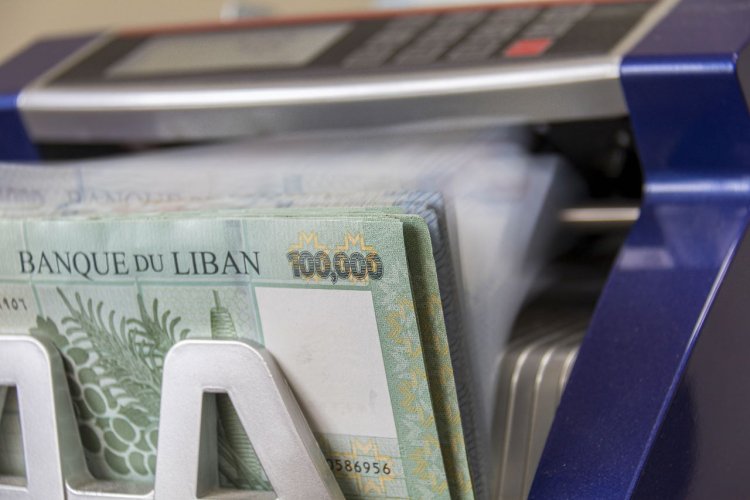Why the presidential vacancy in Lebanon will perpetuate the socioeconomic crisis

31-10-2022
Eleonora Spina
Middle East Team Researcher
Global Human Rights Defence
Amid one of the worst financial crises that the country has ever faced, Lebanon failed on November 10 to elect for the sixth time its President. [1] Since the 1975-1990 civil war the Parliament had already been unable to find a majority for the presidential elections, but this time the vacancy will be harder to face because of the three-year economic meltdown the state finds itself in, the devaluation of its currency, the growing poverty and the significant shortages of water and other necessities. [2]
During the secondary session after the end of President Michel Aoun’s mandate on October 31, the division of Lebanon's politics caused once again the failure to reach a consensus over a new candidate. 86 votes were missing for the independent candidate Michel Moawad to win. Instead of trying to find a new compromise candidate which could be accepted by at least two-thirds of the parliament, every party is only trying to impose their own nominee. [3]
In this situation of uncertainty only a new government with full powers could give the country a real chance to overcome the deepening crisis now that the six-year term of Michel Aoun has reached its deadline on October 31. At this time Lebanon is ruled by a weak caretaker government with limited powers and a deeply fragmented Parliament . [4]
During the periods when the country has no president, the caretaker government has no legal power to convene and make decisions; given the economic crisis, this problematically leaves a void for the urgent financial reforms formulated by the International Monetary Fund, and therefore slows down the recovery process. [5] In fact, after a 10-day mission requested by Lebanon to ask for support, the IMF has agreed on a five “key pillars” list to rebuild Lebanon’s economy, [6] which has been in crisis because of the corruption and poor management by the lawmakers since the end of the civil war. [7]
Since the beginning of the economic meltdown in 2019 Lebanon’s currency has lost 90 percent of its value, which has led to an increase in inflation and a hindrance of critical access to basic goods such as food, fuel or medication. [8] Unemployment rates have been growing, monthly income and purchasing power are declining. The socioeconomic deterioration doesn’t stop here; one of the most impactful aspects of the crisis is reflected in the collapse of water establishments (WEs) and the consequential lack of access to it. WEs are actually not being funded by the state, and while having to operate with their own funds and independently by the financial support from the central budget, they have to face the increasing cost of water since 2019. [9] Even if local authorities try to intervene where WEs are unable to provide services, this is not always possible or successful. Apart from not granting the basic human right to access water – “states are obliged to ensure sufficient, safe, acceptable, physically accessible and affordable water services for all [10], with the recognition that the cost of water should not exceed 3% of household income [11]”- this is going to expose civilians to health risks. Moreover, low hygiene caused by the lack of water to sanitize in a household can lead to the spread of diseases: outbreaks of pathological conditions such as hepatitis A or cholera have already been observed. Lastly, the need to walk long distances or to rely on external sources to obtain water may lead to risks related to sexual exploitation and abuse for women and children. [12]
Sources & Further Reading:
[1]Middleaastmonitor, “Deadlock persists as Lebanon fails for the 6th time to elect new president”, (17 November 2022) <https://www.middleeastmonitor.com/20221117-deadlock-persists-as-lebanon-fails-for-6th-time-to-elect-new-president/> accessed on 21 November 2022
[2]Voa News, “Lebanon fails to elect president for fourth time as Aoun’s departure looms”, (24 October 2022) <https://www.voanews.com/a/lebanon-fails-to-elect-president-for-fourth-time-as-aoun-s-departure-looms-/6802715.html> accessed on 26 October 2022
[3]Middleaastmonitor, “Deadlock persists as Lebanon fails for the 6th time to elect new president”, (17 November 2022) <https://www.middleeastmonitor.com/20221117-deadlock-persists-as-lebanon-fails-for-6th-time-to-elect-new-president/> accessed on 21 November 2022
[4]Congressional Research Service, “Lebanon’s 2022 Parliamentary elections”, (12 May 2022) <https://crsreports.congress.gov/product/pdf/IN/IN11924/2> accessed on 26 October 2022
[5]International crisis group, “Limiting the damage of Lebanon’s looming presidential vacuum”, (27 October 2022) <https://www.crisisgroup.org/middle-east-north-africa/east-mediterranean-mena/lebanon/b088-limiting-damage-lebanons-looming> accessed on 28 October 2022
[6]International Monetary Fund, “IMF Reaches Staff-Level Agreement on Economic Policies with Lebanon for a Four-Year Extended Fund Facility”, (7 April 2022) <https://www.imf.org/en/News/Articles/2022/04/07/pr22108-imf-reaches-agreement-on-economic-policies-with-lebanon-for-a-four-year-fund-facility> accessed on 27 October 2022
[7]AP News, “IMF criticizes Lebanese government over slow reforms”, (21 September 2022) <https://apnews.com/article/middle-east-lebanon-beirut-international-monetary-fund-118acf3fc8102f5617c76aec88aa5df5> accessed on 27 October 2022
[8]Reliefweb, “ When water becomes a privilege: the consequences of shutting down the public water system in Lebanon”, (17 October 2022) <https://reliefweb.int/report/lebanon/when-water-becomes-privilege-consequences-shutting-down-public-water-system-lebanon> accessed on 27 October 2022
[9]ibid
[10]UN General Assembly Resolution 68/157 (2014). The human right to safe drinking water and sanitation.
[11]UN-Water Decade Programme on Advocacy and Communication
[12]Reliefweb, “ When water becomes a privilege: the consequences of shutting down the public water system in Lebanon”, (17 October 2022) <https://reliefweb.int/report/lebanon/when-water-becomes-privilege-consequences-shutting-down-public-water-system-lebanon> accessed on 27 October 2022

































